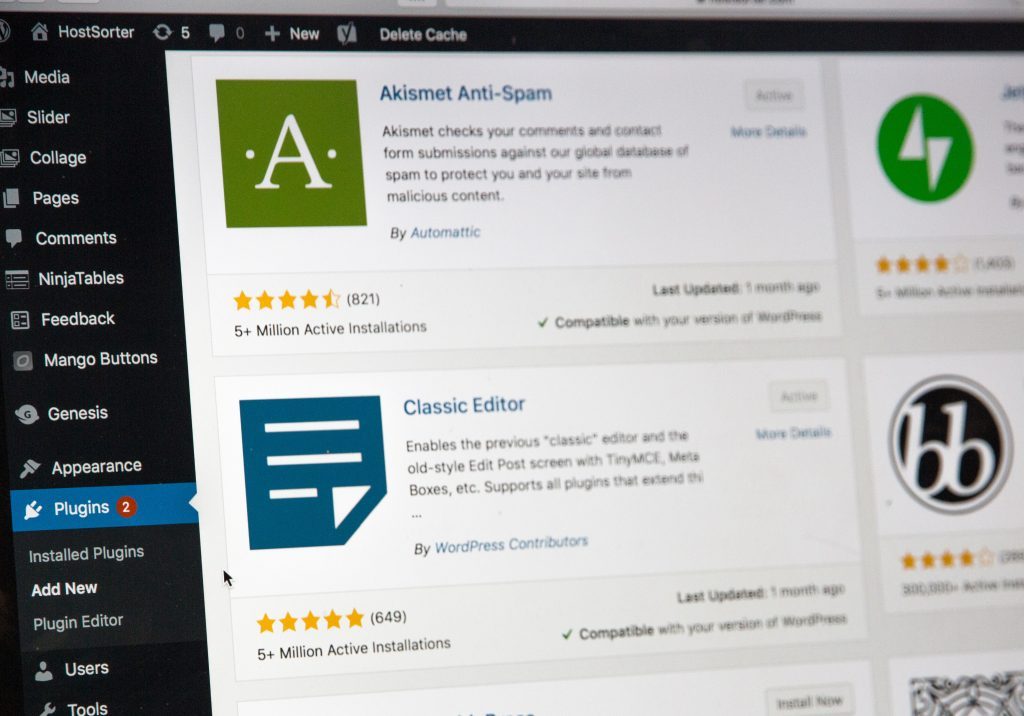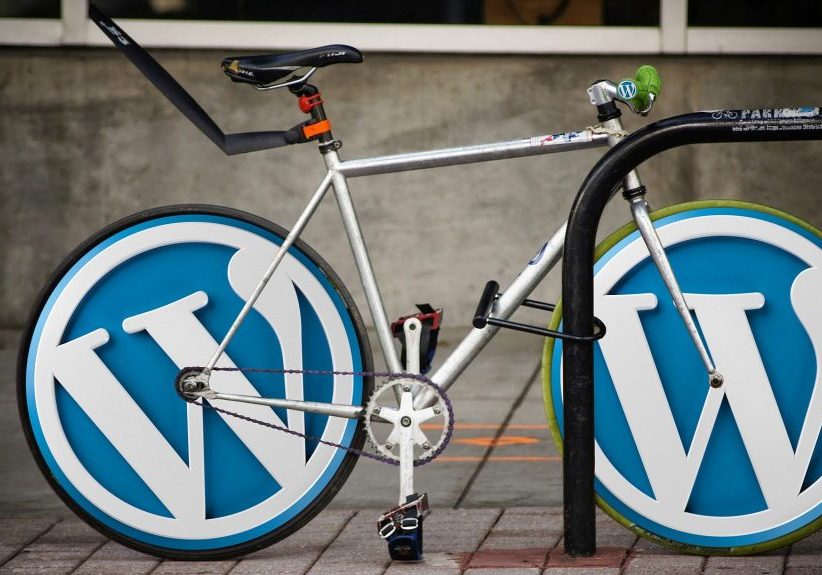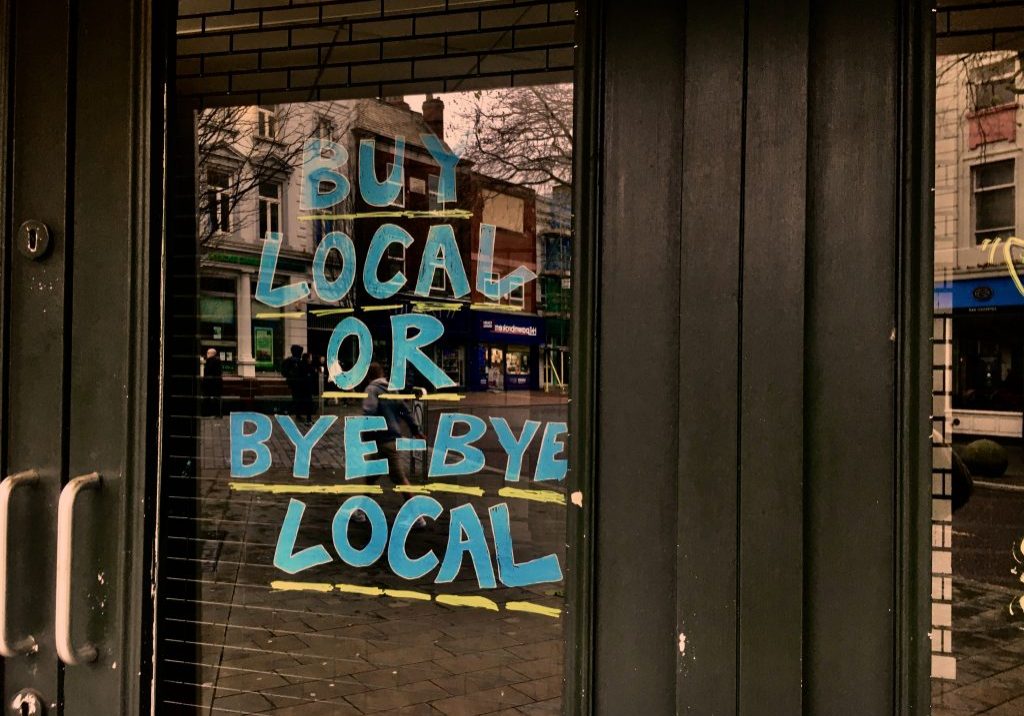Give Your Website A Local Boost, With Targeted Content…
By now you’re probably aware that your business could benefit from Local SEO, showing up in search engine results when customers search for services like yours, in your local area. The chances are, you’re right, as local SEO results in more local shop and business visits, as well as sales and conversions, but how do you do it? What sort of content do you need, to improve your local SEO rankings? Our latest blog takes a look at content you can create to show up in those local searches, as well as other steps you can take, to maximise your local search engine optimisation.
Before we jump straight in, let’s take a look at the basics…
What Is Local SEO?
Local SEO is a (relatively) new phenomena in the SEO world, which is all about optimising your website not just for organic rankings, but specifically to rank in geo-specific searches. These days, users (especially those on smartphones) search for products or services ‘in location’. If you’re unsure what we mean by ‘[Service] in [Location]’ searches it’s things like ‘Accountants in Sheffield’, ‘Driving Lessons In Doncaster’ or ‘Shoe Shop Sheffield’.
Google displays local results in a ‘MAP Pack’, with the top three listings displayed on a map, with user options to visit the accompanying websites, get directions or call the businesses listed.
Why Does Local SEO Matter?
If you perform a local search yourself you’ll quickly understand why local SEO is important. Firstly, the results for local listings are displayed way above regular listings (topped only by ads), so they’re essentially above position 1 on Google, as well as being the highest placed ‘free’ listings your business can achieve.
Secondly, the stats, especially conversion data, for local SEO is eye wateringly good. Here’s a few that should make you sit up and take notice of local SEO:
- 30% of all mobile searches include local terms
- 76% of local search results in a shop or business visit the same day
- 28% of local search results in a purchase or conversion
- Local search on mobile has grown 250%
What Are The Ranking Factors For Local SEO?
As with all things Google, the number of ranking factors is massive, too many to list here. There are, however, a few key ranking factors that your business can rank for, if you’re serious about showing up in Google’s MAP pack:
Google My Business
Your Google My Business listing (a free tool from Google) plays an important role in your rankings within local search. Be sure to keep yours accurate and up to date, as well as seeking out reviews regularly from existing customers.
Local Citations
Local citations is a fancy term for local business listings, such as Yell and BT Phonebook. Google factors in your local citations, including the presence and accuracy of your listings, so it’s worth your while manually completing as many as you can, keeping them as close as possible to the details you use on your website and Google My Business listing.
Your NAP
Your Name, Address and Phone Number is used as an indicator of where your business is and, based on the presence and consistency of your NAP throughout the web, indicates how bona-fide your business is.
Location & Proximity
One of the ranking factors for local search is proximity; how close your business is to the person making the search. Unfortunately there’s not much you can do to affect this factor, so you need to boss the others.
Creating Content For Local SEO
Optimising Your Existing Content For Local Search
As local searches are predominantly done on mobile, you’ll first want to ensure your webpages are optimised and mobile friendly. Run through your existing content on mobile (or using mobile view if optimising using a desktop) to ensure everything works properly on smaller devices. As a failsafe, check Google Search Console which will flag up any issues your website may have on mobile, including hard to read text and poorly navigated links.
Adding structured data, whilst not directly affecting your local page rankings, will help Google crawl and understand your website more easily. With this in mind, it’s worth adding structured data to your content and website; especially adding the ‘Local Business Schema’ to any relevant pages.
If you’re unsure how to create and add schema to your website, don’t worry, once you’ve generated the code, it’s just a case of pasting it onto relevant pages (or the footer of your website, for example). Generating the code can sometimes be difficult to fully understand, but there are plenty of tools out there to help. Here’s a few to get you started:
If you have a WordPress Website, then you’ll be able to use one of many countless schema generator plug-ins that will do all the hard work for you, but remember they can often slow down your website and potentially create more vulnerability, so you’ll really need to weigh up the pros and cons of using them.
Refreshing Content To Include Local Keywords
Whilst we never recommend shoe-horning keywords into content, it’s worth giving your existing pages and content a once over, looking for opportunities for adding local keywords. It doesn’t have to be contrived, sometimes there’s an opportunity to add a little bit about your business and it’s roots on existing service pages, for example. For instance, we have plenty of service pages, such as SEO and PPC management that have a row dedicated to our agency and it’s roots in Sheffield. This not only enhances our page offering, but also helps us rank for those geo-specific searches.
Creating New, Local Content
If you haven’t already, it’s time to mind-map some local content ideas. We do this quite regularly, to good effect, interspersing our ‘regular’ content with local stuff. If you’re struggling for local content ideas, we’ve got you covered, here’s a few ideas:
Location Specific Landing Pages
Landing pages, showcasing your services, with content tailored towards a specific region, city or town are a great way to improve your organic rankings for local terms. Building location landing pages, under the hierarchy of your existing website will not only enhance your content depth and complexity, it will also improve local terms. In a more pragmatic sense, users want tailored experiences, meaning local landing pages, at the very least, will create a better experience for your website visitors in their respective locations.
We’ve had pretty good success with location specific landing pages and we have this bit of advice; don’t chase the numbers. Often, location pages attract miserly organic traffic, thanks to the low number of searches each month. That said, the traffic they generate is super focussed and often converts at much higher rates than most traffic.
FAQ Pages
FAQ pages offer double benefits, maximising local SEO and creating rich snippet opportunities.
Answering FAQ’s not only helps your user, by answering their questions in advance, boosting your company’s reputation, but also let’s your website talk about local keywords naturally and organically, improving your overall rankings.
If you do create an FAQ page you’ll want to give it the best possible opportunity of showing in Google search, particularly as a rich snippet (these effectively displace regular organic results). Adding schema can help Google crawl your webpage and recognise FAQ’s more easily.
We recommend using Saijo George’s FAQ Page JSON-LD Schema Generator, which is tried and tested on Google’s Structured Data Testing Tool.
Guides
Our most popular piece of content, by far, was A piece we did on Sheffield’s Bonfire Night Events. Why? Because it served our local audience well. You can maximise your local SEO by creating guides relevant to your local area. Don’t get too bogged down in the detail, the theme of your guide doesn’t necessarily need to fit rigidly into your particular market (it’s more ideal if it does), instead you should think of guides as a way to reach out and build local links.
Think about our Sheffield Bonfire Nights post for example, whilst it doesn’t directly bring in customers looking for an SEO or Digital Marketing Agency, it’s a pretty safe bet to assume it’s main audience is people in Sheffield. With that in mind, we’ve started the upper funnel of our marketing; reaching out to local people. From there we can remarket, create lookalike audiences and much more, not to mention picking up easy backlinks from local websites; something which boosts our organic rankings.
You can even add a specialised map to your guides, using Google’s My Maps.
Create & Support Local Events
Creating or supporting local events can really improve your reputation with customers nearby, but if you’re savvy enough, it can also boost your local SEO too. At the very least you should create a post about your event, ideally with internal links to the pages you’re looking to improve rankings for. Don’t forget to optimise your post or event page for social sharing, so that links look their best when people share them on Facebook, Twitter and LinkedIn.









